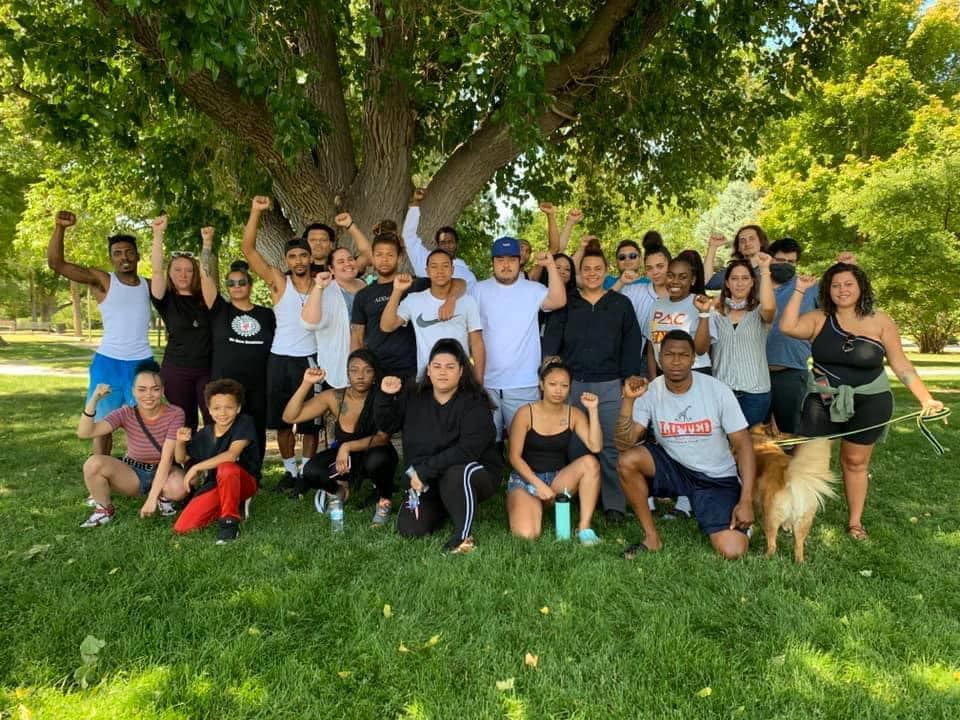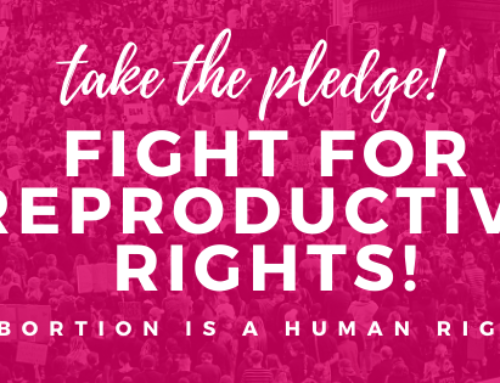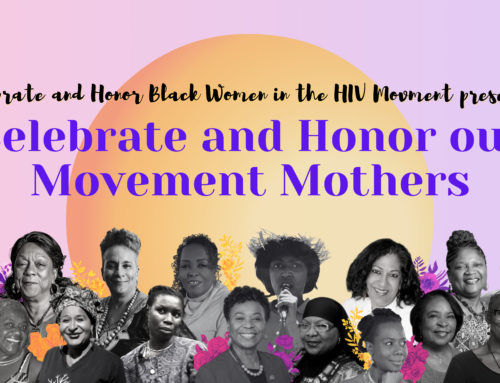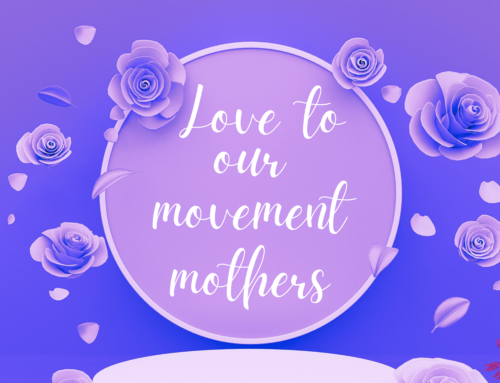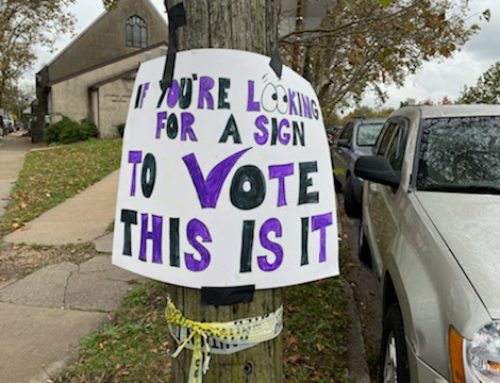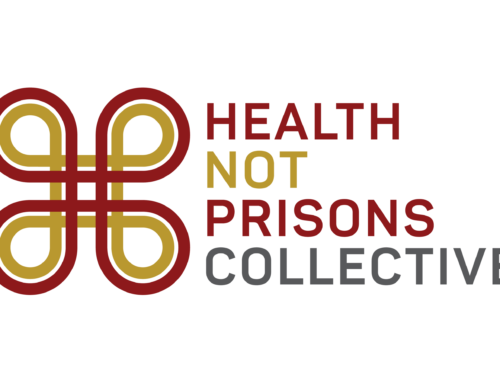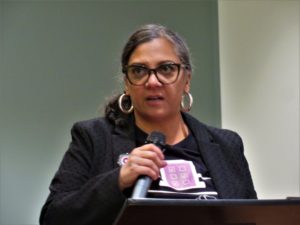 August 31, 2020: Shannon Robinson is one busy woman. She has been organizing around the elections in Colorado with PWN since the 2018 midterms–work she’s continuing for the 2020 elections. But her organizing kicked into high gear at the end of May and in June following the murder of George Floyd in Minneapolis. She helped organize a march for racial justice in Grand Junction, a small city in western Colorado of just over 60,000, that attracted hundreds of participants. And that was just the beginning.
August 31, 2020: Shannon Robinson is one busy woman. She has been organizing around the elections in Colorado with PWN since the 2018 midterms–work she’s continuing for the 2020 elections. But her organizing kicked into high gear at the end of May and in June following the murder of George Floyd in Minneapolis. She helped organize a march for racial justice in Grand Junction, a small city in western Colorado of just over 60,000, that attracted hundreds of participants. And that was just the beginning.We caught up with Shannon to learn more about what drives her to organize and to keep going in pursuit of racial justice.
Q: Can you tell us why you are committed to racial justice? What was the deciding factor for you?
A: I’m committed to racial justice because I’m a queer Black woman, and I can’t remember a time where the world treated queer Black women in a just manner. I don’t think I can identify a single deciding factor–I’ve always been active and outspoken. I feel like growing up–or being a child–in a very rural community was very difficult for my mother and me. We moved from rural western Colorado to Denver when I was in second grade, because my mother thought it would be easier for me to grow up in a more diverse community.
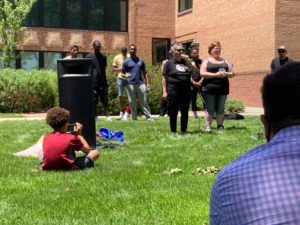 Q: Can you share a little about why you organized a march as a response to the wrongful death of George Floyd in Minnesota?
Q: Can you share a little about why you organized a march as a response to the wrongful death of George Floyd in Minnesota?A: I actually helped organize a candlelight vigil for George Floyd in solidarity with folks in Minnesota. I have quite a few college friends who have been lifelong activists; we got together and felt like we wanted to honor George Floyd and the others we’ve lost any way we could.
Q: What were some outcomes you were hoping to see as a result of the march? Were your expectations met or exceeded? How so?
A: I’m hoping to create change, where folks can be safe and be themselves and have a better quality of life. We’ve been organizing marches here since May 31, and yes, my expectations at first have been exceeded. We were able to go to city council and have a meeting privately with council members and have our voices heard. We’ve also been able to celebrate Juneteenth for the first time ever in Mesa County, which was a beautiful, beautiful day, with a pop-up historical art show, food, singing, dance, speeches by community members. It’s my life’s dream, I’ve always wanted to do that here. It’s important for me, my family, my children, my friends, and my comrades who put their lives on the line every time we’re out.
Q: You support SB 20-217, The Law Enforcement Integrity Act. Please tell us a bit about this bill and why you are in favor of it. Do you feel this bill will prevent any police brutality in the future should it become law?
I definitely support SB 2217, the Law Enforcement Integrity Act. I think for far too long, law enforcement has not been held to the standards that, say, military members have been held to. Police officers are not above the law. We’ve got to stop them from murdering our people. People have to be accountable, no matter who they are.
I don’t know that this bill will prevent police brutality in the future, though. I think, unfortunately, quite a few radical nationalists join the police force, and I’m not sure how we can prevent brutality by militarized police force, especially in this time where we have 45 and folks like that in the White House, putting up a wall for protection to hide behind it; when we have 45 ordering militarized police to clear protesters so he can hold a book up at a church that he doesn’t even attend.
I don’t know what the future brings, but I do know that I’m going to continue to fight alongside my friends and comrades and sisters, and I thank you for this opportunity to be featured–it’s a great honor to work alongside folks who have been fighting for people’s rights for so long, so hard and seen so much strife. I’ve learned so much from you all. I’m honored to be in the sisterhood of PWN.
You can read more about Shannon in this profile in the Grand Valley Free Press!



